The controversy over the presence of drug lords on stage at President Gustavo Petro's "urban peace" event

In a televised address from the Alpujarra, the administrative center of Medellín, President Gustavo Petro presented to the country the "urban peace" program he has been promoting with leaders of criminal organizations who, despite being behind bars, continue to control the underworld in the capital of Medellín.
The event began with interventions by local leaders and victims of violence, but escalated when the president began to hurl insults at the mayor of Medellín, Federico Gutiérrez, and the governor of Antioquia, Andrés Julián Rendón, and when leaders of criminal gangs began to appear on stage, captured in operations that included transnational ones and held in local prisons.
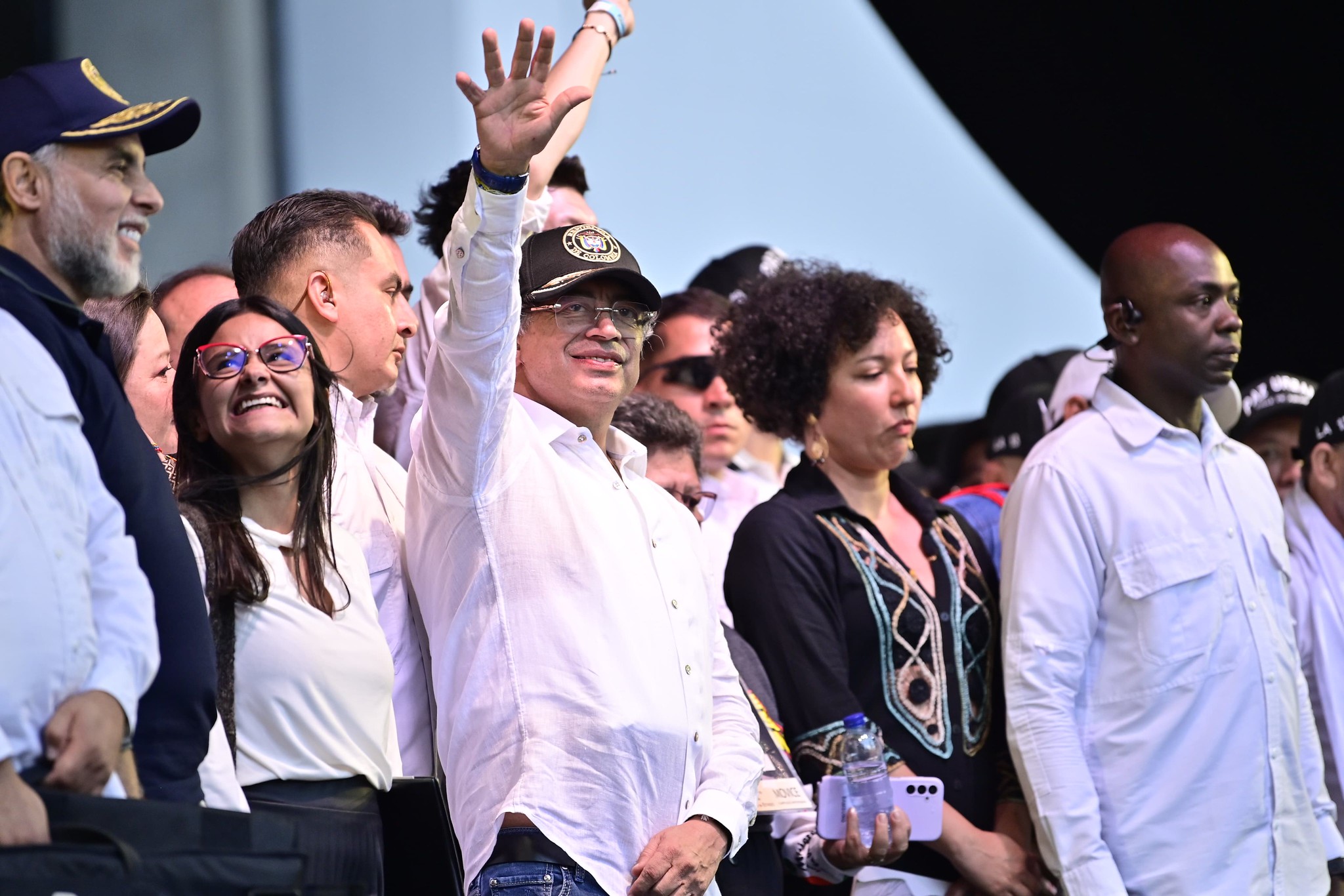
President Gustavo Petro in his speech from Medellín. Photo: Presidency
Videos began to appear on social media showing how heirs to the Paisa underworld—who belong to criminal structures that emerged during the era of Pablo Escobar and the paramilitaries—began being transported to La Alpujarra by bus and were seen on stage, even preceded by the Minister of Justice, Eduardo Montealegre.
At the same time, President Petro began asserting in several sections of his speech (which lasted nearly an hour and a half) that officials linked to Fico Gutiérrez's mayoralty and even the regional prosecutor's office were hindering the progress of "urban peace." In fact, he suggested they be removed from their positions.
In this regard, he even called the mayor a "dictator," suggesting that he has an official in his cabinet who was a prosecutor and who would have influence within the prosecutorial body to capture his political enemies.
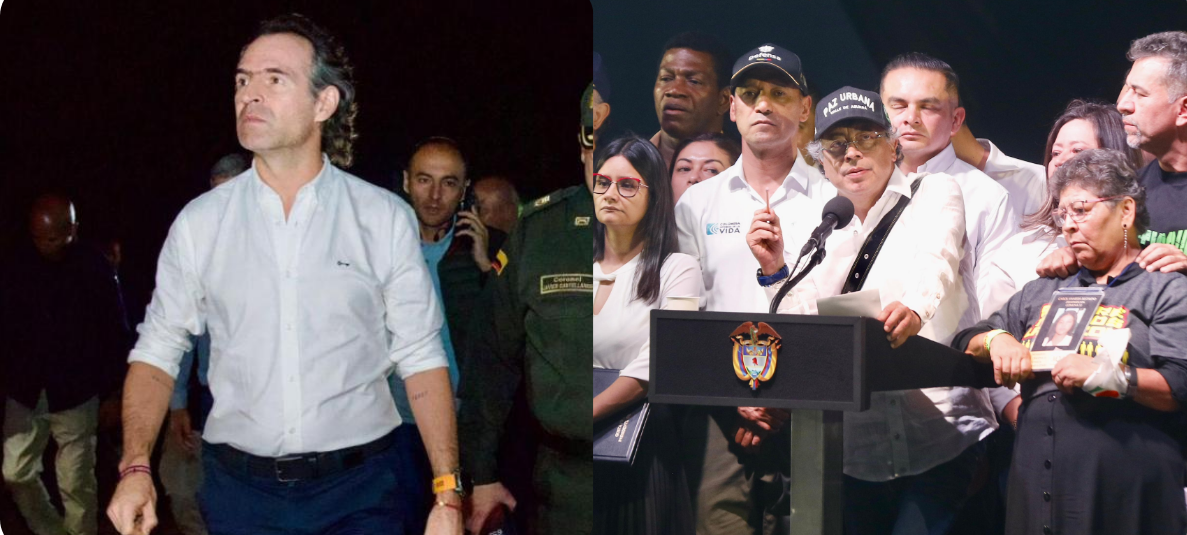
Medellín Mayor's Office and Jaiver Álvarez Photo: Medellín Mayor's Office and Jaiver Álvarez
"A mayor once said I shouldn't come here (to Medellín): Mamola, the President goes wherever he wants," he said, again referring to Gutiérrez, who a few days earlier criticized the president for going to an electoral mobilization instead of meeting with authorities to find solutions to the issue of public order and programs for citizens.
The chain reaction Finally, the president asked Attorney General Luz Adriana Camargo to review whether her officials were heeding his advice and to accompany him to prisons to explore legal mechanisms to seek peace with these mafia-like structures.
The first to react was the mayor of Medellín, and in the last 24 hours, several sectors have come out to reject the presence of drug lords at the event, the tone of the president, and other participants, including Senator Isabel Zuleta of the Historic Pact and alias Vallejo.
"Petro has put a tombstone on us. What he did in Medellín, releasing the worst criminals from prison, putting them not only on his side, but on his side, is not a political act, but a reward for barbarism and his criminal acts," said Mayor Gutiérrez.
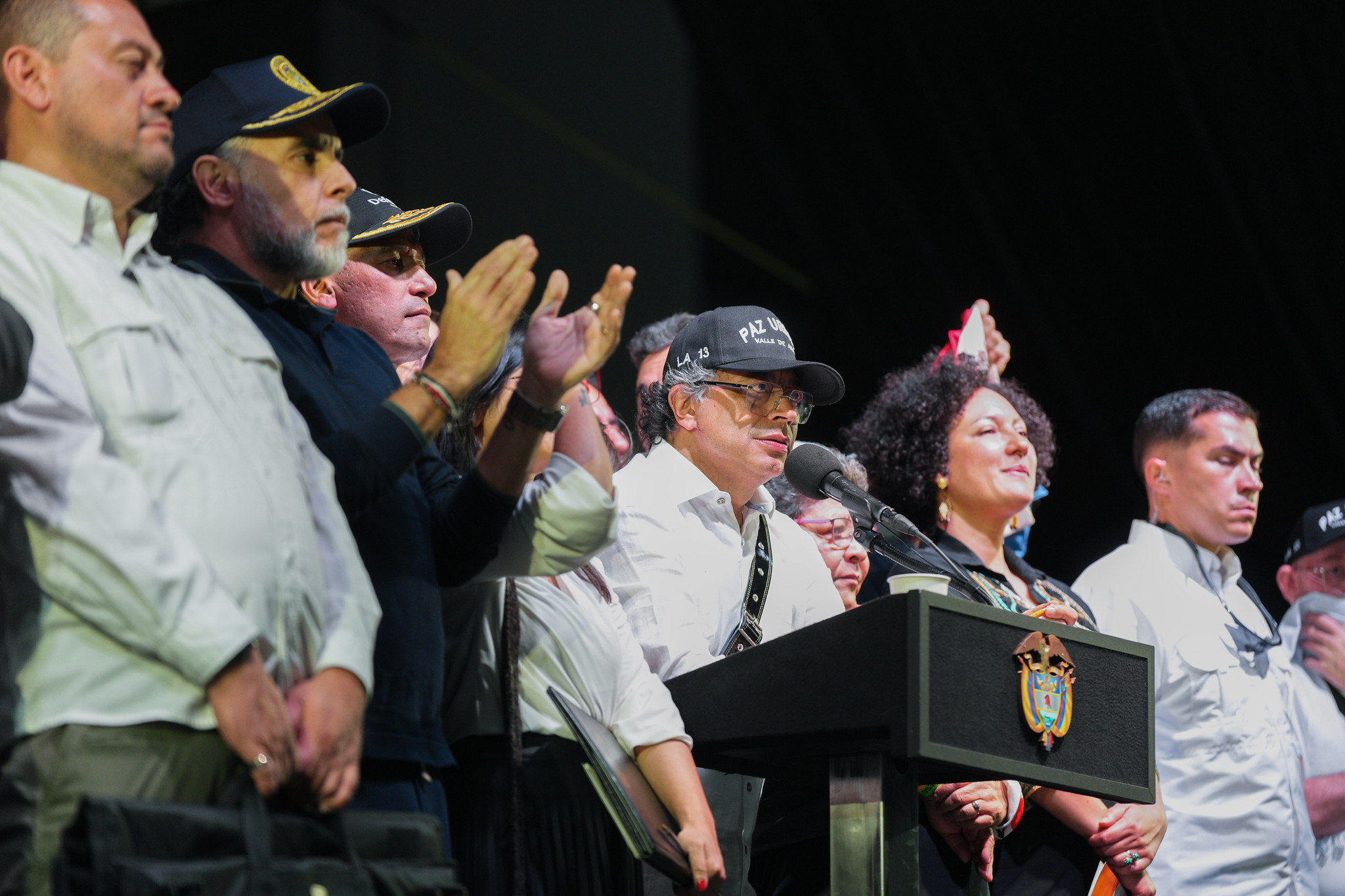
President Gustavo Petro in his speech from Medellín. Photo: Presidency
He added: "We already know whose side Petro is on. We, who defend institutions and are on the side of the people, know that we will continue doing our job confronting criminal organizations." Hours later, he reported that alias "Douglas" had already threatened him in previous days.
Governor Andrés Julián Rendón took a similar stance to Gutiérrez and even questioned Minister Montealegre's presence at the event.
"Tell me who you hang out with, and I'll tell you who you are. President Petro came to the capital of Antioquia to surround himself with criminals; this is an affront, a humiliation of the victims, a betrayal of the Army and the National Police. The people of Antioquia count on Mayor Gutiérrez and their governor. In Antioquia, we will not be defeated," the governor declared.
Almost immediately, and without naming names, Carlos Fernando Galán, mayor of Bogotá, came out in support of the institutions of Medellín and Antioquia: "Instead of putting the heads of active criminal organizations on the podium, what Colombia needs is for us to surround the institutions and support security agencies, judges, and prosecutors in the fight against crime." And on Sunday afternoon, the Colombian Association of Capital Cities (Asocapitales) issued a statement.
"Transferring criminals from prisons to participate in public events attended by civilians represents an affront to institutions and demoralizes the public forces and those responsible for investigating criminal organizations," they stated.
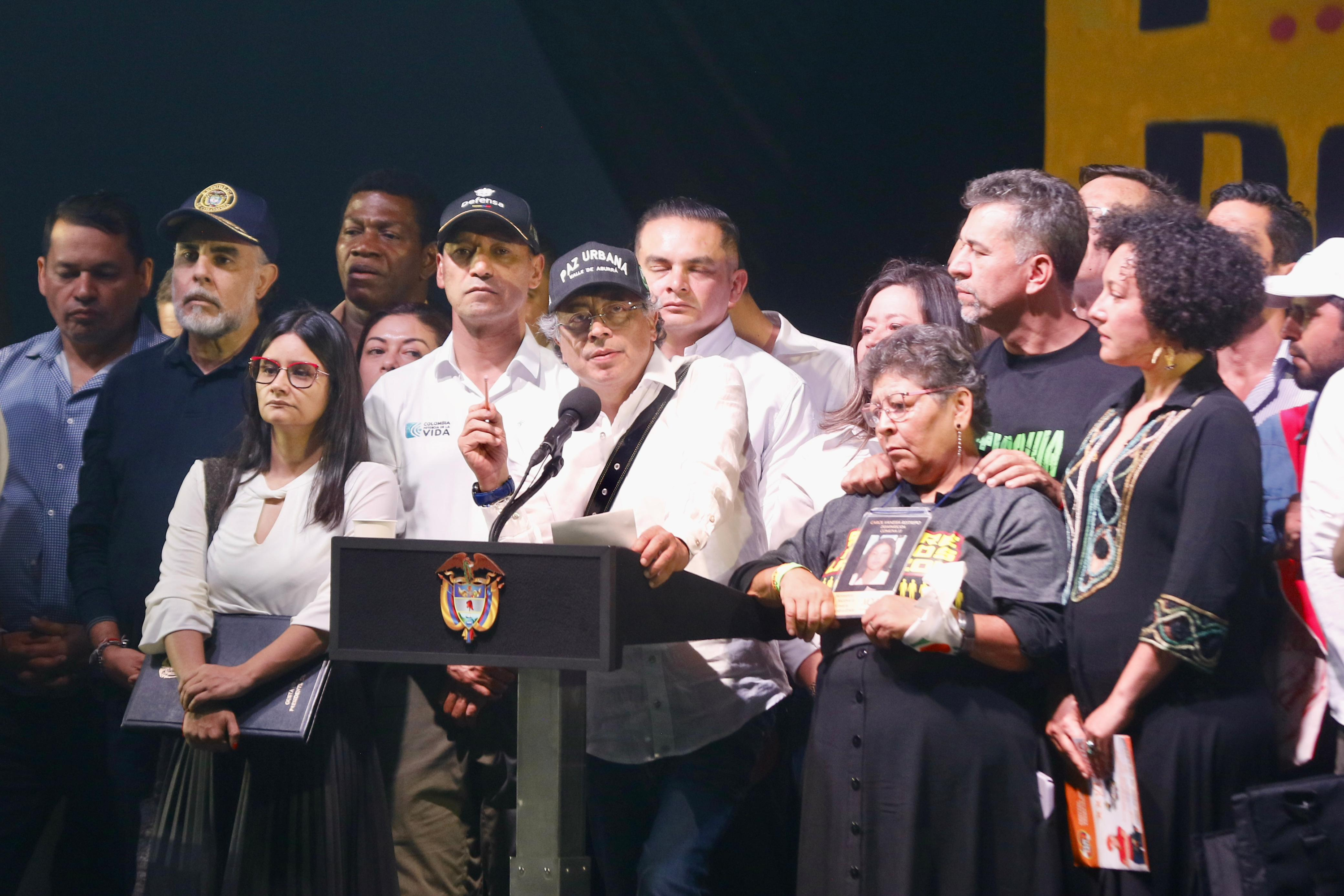
President Gustavo Petro addressing the crowd at the La Alpujarra square. Photo: Jaiver Nieto Álvarez
A similar sentiment was expressed in Congress, such as that of Senator María Fernanda Cabal of the Democratic Center, who described the "depressing spectacle of Petro surrounded by bandits." She added: " It's nothing more than the development of what they called the 'Pact of La Picota.'"
The Prosecutor and the Inpec So far, Prosecutor Camargo has not commented on the possibility the president raised with her of going to the prisons with him to seek avenues for a possible peace with these structures: "Let's go to the prison to examine, under existing rules, the possibilities of legal benefits in exchange for the complete and definitive laying down of weapons, murder, and extortion," Petro said.
The National Institute of Criminal Investigation (INPEC) has not commented on the bosses' departure. For now, it has been unofficially learned that the bosses were mobilized as part of their recognition as spokespersons for these organizations and that they have appeared at other events related to these dialogue tables.
You can see: 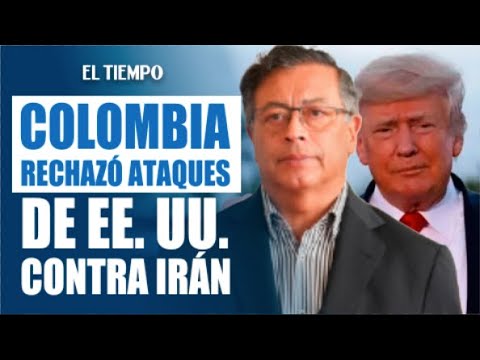
The Foreign Ministry called for diplomacy in the escalation between Iran and the U.S. Photo:
eltiempo





